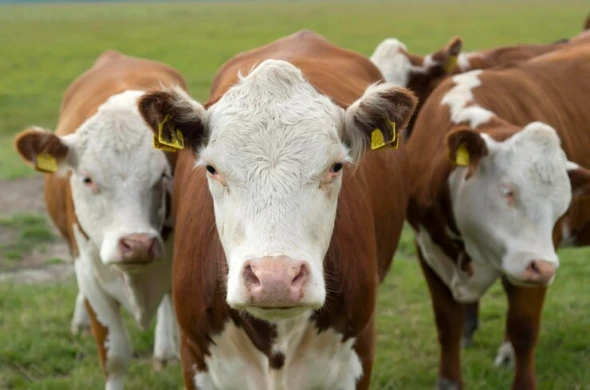Every industry has its share of ethical issues, and the agricultural sector is no exception. These issues often become magnified when you're dealing with areas lacking specific resources or other necessary aspects of a thriving agricultural industry. For instance, the Middle East is an area that is in the process of revamping its agricultural sector to make it more affordable and sustainable for all.
The Middle East & Africa region has high food insecurity risk rates in several places. For example, Comoros has a 49% food insecurity risk rate, while Djibouti has a rate of 42% on the macro level. With that in mind, here is an overview of the most significant ethical issues facing agriculture in the Middle East & Africa, and what the area is doing to combat these issues moving forward.
What is Agricultural Ethics?
Agricultural ethics is a type of ethics created to address topics or issues associated with the overall integrity of the farming sector. Since agriculture is the practice of using technology to cultivate crops, agricultural ethics is meant to address the various unfair practices associated with the general functionality of the agricultural sector.
In other words, agricultural ethics involves various elements of agriculture that can promote unethical actions to achieve a goal. Some of the most prominent ethical issues affecting the agricultural industry are as follows:
- Mother nature: Mother nature is the ultimate wild card. This is because it is so unpredictable and can cause insurmountable damage in a short period of time. The reason mother nature is considered an ethical issue is that it can force humans to overstep ethical boundaries as a means of creating more fruitful harvests.
- Climate change: Climate change has also become a major ethical issue within the agricultural industry. In the Middle East, in particular, this is a significant issue. Given that rising temperatures are obliterating an already dismal water supply, climate change is fueling a significant migration in an area already rife with cultural acts of violence and other types of brutality.
- Economic agriculture issues: Since the region has been dealing with instability for quite some time, widespread economic problems are also causing issues in agriculture. In particular, political transitions, mass migration, slow economic progress, and high unemployment rates have played a significant role in the region's inability to stabilize and upscale the agricultural industry.
- Environmental issues: The Middle East is also on the verge of a major ecological crisis. The MENA region has fallen behind on meeting the specified sustainable development goals. This region has used much more water than it replenishes, and since climate change can also boost water stress, experts are highly concerned that the area may face issues that last for many years to come.
- Political factors: The political climate in the Middle East has led to a host of long-term issues. For instance, excessively centralized programming has been a significant problem in this region; the area has created policies that do not favor urban areas. Moreover, since multinational companies provide a large amount of funding to the site, these companies have become instrumental in decision-making in the area. Often, this results in policies that favor these organizations over the collective.
- Supply and demand: The Middle East has a population of roughly 296 million; the area is projected to double its population by the year 2030. This means that the demand is growing dramatically while the supply is also dwindling. This may cause the region to make tough decisions in terms of how to supply enough food for all.
Agricultural Issues Affect Us All
These days, even areas that were once dealing with an agricultural surplus, such as the US, have experienced catastrophic disruptions within the agricultural ethics in recent years. Therefore, regions such as the Middle East must develop solutions that allow them to move beyond these matters before they worsen.
Ways to Improve Agricultural Ethics
Decision-makers in the region have decided that now is the time to create and implement solutions to improve agricultural ethics in the Middle East. Luckily, areas such as the United Arab Emirates and Saudi Arabia are largely investing in the agribusiness sector to expand the sector and combat unethical behaviors which is working against food security and sustainability.
Ways to Improve Agriculture
Here is a plan the UAE created to address agricultural ethics issues in the Middle East:
- Food Safety: Establishing and enforcing regional food safety regulations has been a significant challenge. However, by boosting the ME economy, the area will be more capable of making these changes.
- Treatment of Animals: In 2019, the UAE made an amendment to address the ethical treatment of animals. The resolution includes parameters designed to boost economic growth and improve cooperation between local and regional animal welfare groups.
- Policy Development: The region also plans to create an overall healthy animal welfare policy. They are also in the process of developing a national animal welfare policy that will apply to the general treatment of animals.
- Use of Chemicals: There is now a widespread effort to reduce the use of chemicals to make the agricultural industry more sustainable overall.
- Farm Management: There has been progress made in terms of addressing the mismanagement of the farmlands.
- Sustainability: The UAE has become more sustainable in recent years. The region has developed its technology, infrastructure, and expertise, allowing them to grow more food locally and make it more sustainable.
- Trade Agreements: Since the Middle East has a large amount of human capital, it is ideal for trade agreements. The UAE has created several trade agreements with various territories and will continue to do so in the future.
Although the Middle East & Africa region is rife with agricultural ethical issues, the area has been making significant progress. In the future, the area will focus on food safety, treatment of animals, policy development, and more. Moreover, since the region is largely dependent on imports to supplement their agricultural deficiency, becoming more self-sufficient is a major way the region will become more sustainable.
Ollen Agriculture Consultancy Services
Ollen Group agriculture consulting services offer turnkey solutions from strategy to execution, as well as design & supervision. Our expert farm consultants will help your through your journey to sustainable agriculture.
Read our latest insights, ideas, and perspectives that explore the trends shaping the future of business and society. Our consultancy services go hand-in-hand with these insights, confirming our position as industry leaders. Get in touch to find out more about our consulting services and industry expertise.



